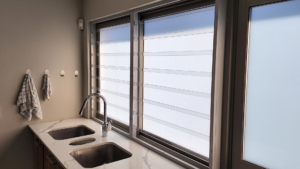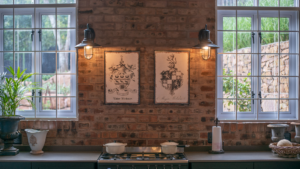We spend a lot of money investing in home security systems to ensure that our homes are always as secure as they possibly can be. However, these security systems require maintenance to ensure that they are functioning at their best and do not have system breakdowns.
Maintenance is something that we are all familiar with, and we might do regularly for our vehicles. The same maintenance is also required for our home security systems. If you neglect to do some maintenance, it could lead to system breakdowns that are expensive and make your home much more vulnerable to break-ins. Part of your home security system maintenance includes checking all the system’s individual components and ensuring that all individual parts are effectively communicating with one another. Below are some of the maintenance steps that you can check off.
- Conduct Weekly Perimeter Checks
Conducting perimeter checks requires you to look around your home and inspecting the condition of your doors and window locks. Firstly, look at your doors, ensure that they are latching on properly, and look out for signs of tampering on the door locks. If you discover that the doors are not doing any of these things, then you should ensure that you replace them as soon as you discover the issues. Ensure that the door and window frame’s structural integrity can still hold up even if excessive force was used.
When it comes to the outdoor areas, ensure that your home’s landscaping is neat to limit all the potential hiding spots. Security lights, especially those used in outdoor spaces, should be tested to ensure that they are working correctly and that their light bulbs are functioning correctly.
- Test the Control Panel
The best way to maintain your security system is by performing regular tests, especially testing your control panel. The control panel, or as it is also known, is the brain of your security system, is where all the action occurs. The signals from the sensors pass through your control panel, where it interprets the signals to activate the security system. Part of the panel includes a ‘test’ mode that can run self-diagnostic, ensuring that everything is operating effectively.
Therefore, if you are using a monitoring service, it would be recommended that you notify them beforehand before you run the test mode to prevent the monitoring service from alerting the police once the alarm is activated while running the test. Look out for loose wires or damage to the systems. If you detect any issues or signs that the system is wearing or malfunctioning, you should notify your alarm company. However, if you are using a modern control panel, these self-diagnostic tests will verify the status of devices, and if there are any issues, it will notify you.
- Check the Batteries
Your home security equipment consumes a lot of energy. Depending on the equipment you have, they might require battery changes at different intervals due to various factors. Therefore, the devices you should check off your list are:
- The batteries in motion sensors
- The batteries in remotes
- The batteries in CO/smoke detectors
- Inspect Security Cameras
Your security cameras are an essential part of your home security system, and if they had to stop working, it could have dire consequences. To avoid your home becoming vulnerable to break ins and attacks, ensure that you examine your security cameras daily. For analogue cameras, you are to check the condition of the cables. Inspect the wires for visible wear or tear and that they are properly connected. Improper cabling and installation are one of the most common issues for CCTV cameras malfunctioning. If you have an IP camera that is WiFi connected, you should ensure that the signal is strong enough for it to receive a 24/7 connection.
- Schedule Annual Professional Inspections
One of the most crucial ways you could implement to prevent your system from malfunctioning is by having annual professional inspections conducted by a qualified technician. Doing so will ensure that your system runs smoothly for many years to come. A qualified technician will be able to check all your components, power supplies and the wiring in your system and repair or replace any parts that are not working as well as they should be.
You can also have software updates if your system requires it, which can assist in the elimination of bugs and it significantly decreases the risk of the system malfunctioning. Having these inspections annually will also save you a lot more money in the long run, as you will be able to avoid the risk of your system completely failing when you need it the most.
- Perform Safety Checks
To ensure that your home has the necessary protection that it requires, you should ensure that you check its safety as well. Firstly, ensure that there are fire extinguishers on each level of your home, especially in the kitchen. You should inspect them each month and ensure that they are serviced if they do not have enough pressure. Secondly, make sure that your children are aware of the safety procedures you think would keep them safe, like fire escape plans. Teach your children essential house rules and make sure that you review them regularly, like not sharing personal information with strangers.
Conclusion
Home security systems greatly assist in keeping your home safe, but it does not mean that it does all the work for you. Therefore, security system maintenance is crucial to ensure that your systems last as long as possible and that all the components work well together.
Moreover, here’s How to Prepare Your Home Security System for Loadshedding.



